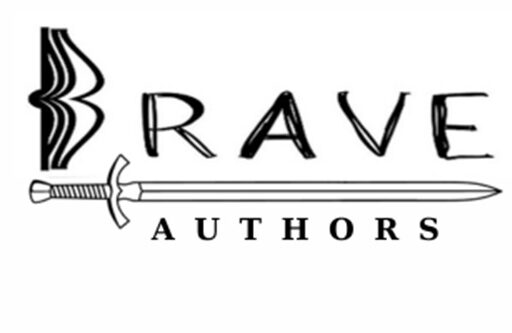By Brave Author Aubrey Taylor
People often say that history is written by the victors. Yet how much do we really stop think
about the implications of that, or how it affects the modern world?
I know that there simply is not time to teach everything in history class. However, even people
who have a keen interest in history do not necessarily know about the things that were done to
the Germans towards the end of the Second World War and in the years immediately following.
Others brush these things off as unimportant, a natural part of war, or completely justified as
having happened to the people who allowed Hitler into power.
I don’t think there is one person who can deny that certain parts of history have been altered,
whitewashed, or completely erased, especially where it involves those who have been on the
losing side of some conflict… even more so when it comes to those we see as guilty. Yet if we
are brave enough to seek to learn their side of the story, we find ourselves walking a fine
line between trying to discover the truth and buying into everything the absolute
revisionists are selling.
No one can ever excuse the crimes of the Nazis, but the defeat of Germany after the Second
World War unleashed a tide of hatred, violence, and reprisal that the world had never seen.
Lynching, hangings, burnings, rape, forced expulsion, death marches, concentration
camps—these things happened to many millions of Germans throughout Europe. Nazi Party
members and soldiers were not the only victims. Old men, women, and children were as well.
Most of these crimes have never been prosecuted. It is as if they never happened. If history
books mention these events at all, they are usually downplayed. People act as though these things
were the Germans’ “just deserts” for supporting (or simply tolerating) the National Socialist
regime. They say, “The Germans did the same thing to Jews and other people groups, so what
did they expect?”

Does that mean this information should be excluded from the history books, or relegated to
a few offhand sentences, or a footnote? Does it exonerate the Allies from crimes against
humanity?
When history books or the media do address the crimes of the Allies, they often focus on crimes
committed by the Russians. I realize that in order to be palatable, we have to start with a little
truth at a time, and for those of us in the West, it is still impossible to imagine that our heroes
may also have been complicit in war crimes, or that our own nation may bear a level of
culpability in how our leaders dealt with the war and its fallout.
If we are truly concerned about “Never Again,” we need to be willing to look at the whole
picture.
When I’m not researching history, I spend time trying to understand current issues in Germany. I
was homeschooling my children the first time we visited Germany in 2017, and I was surprised
to find out that homeschooling is illegal there. When I asked why, I was told that they do not
want parents indoctrinating their children in Nazi philosophy.
Maybe that was an oversimplification, but at the time, all I could think was, “Are neo-Nazis
really that big of a problem?”
The answer is complicated. True neo-Nazis are a negligible percentage of the population, but
many with conservative political views are reluctant to talk openly about their opinions, for fear
that they too may be labeled a Nazi.
There are some things I’ve observed in my travels to Germany, in my research, and in talking to
Germans of various age groups. I do not pretend to speak for them. These are my own
thoughts and observations.
As a nation, Germany has owned the sins of their past. This cannot necessarily be said for
other nations. A Culture of Remembrance exists in order to make sure their population
understands that these things can never happen again. For example, Germany has monument
after monument dedicated to the victims of the Third Reich, the biggest and most famous of
which resides in the heart of Berlin. From what I have heard, teaching about World War II in
German schools centers completely around the Holocaust.
My fear is this: that the problem has not truly been dealt with. Many Germans express that it
is shameful to be German–or at the very least, it is not something they are proud of. If their
families suffered during or after the war, they have been forced to remain silent and accept those
things because of the long shadow of guilt cast by the regime their ancestors lived under.
As a seventh-generation German-American who celebrates her German heritage, I find myself
asking questions like, Why are they only comfortable wearing their national colors at sporting
events? Why, as one German friend mentioned to me, does so much of their popular music come
from America? Why did a woman from Germany say online that she hates singing in church in
her mother tongue, and prefers to sing in English? Why is there still shame after all these
generations?
But I know the answer. In fact, I’ve experienced an inkling of that shame myself.
As I sit here thinking about all this, I have to admit, maybe it’s not so surprising that “Far
Right” politics have a growing appeal to today’s Germans. Most of these individuals do not
have neo-Nazi tendencies, though they do want to feel some pride in their heritage again.
(Germany as a unified nation did not appear on the map until 1871, but there are hundreds of
years of rich Germanic history, language and culture.) Germans feel they have a right to
domestic security and well-being—not to the exclusion of others, although immigration policies
are one of the things that may need to be reexamined (beyond the scope of this post).
Many people see the political Right as the entity that is most willing to address their concerns.
As someone with a deep interest in Germany’s past, present, and future, I am watching to see
how things develop. Many of Germany’s politicians and parties refuse to work with members of
Alternatives for Deutschland, Germany’s current Far Right party. My question is, will their
refusal only make things more unsettled if the AfD continues on its upward trajectory?
As an American, I see obvious similarities with our own political situation, though the German
party system is vastly different from ours, and the problems that have emerged from our past
cannot truly be likened to theirs.
As a Christian, it brings me back to God’s Word, because ultimately it comes down to our
attitude toward leadership. There is always the hope that a change in government will bring
about salvation from whatever current societal ills exist. Yet Psalm 146:3 (NIV) both reminds
and warns us:
“Put not your trust in princes, in human beings, who cannot save.”

Aubrey Taylor is a mother of three who moonlights as an indie author. Her books pull no punches, hailing from a Christian worldview but filled with grit and unbridled honesty. She lives in Upstate New York with her husband, three children, and two skittish cats named Mama and Mia. When she’s not writing or taking care of her home and family, she enjoys singing with a German choir, and also performs with a Bavarian folk dancing group. She is a lover of Jesus Christ, The Holy Bible, music, history, and German culture, and can usually be found with a cup of tea in hand!
Download Hans Waldemar Remembers Normandy for free here.





2 thoughts on “The Truth About History”
Revisionist history can be an uncomfortable topic, but we need to be brave and keep searching for the bare truths from our past. Even the ugly truths remind us that as Christians our trust belongs to God, not to government. Great post, Aubrey!
Thank you Priscilla! Perfectly stated: “be brave and keep searching for the bare truths from our past.” Our trust truly belongs to God!